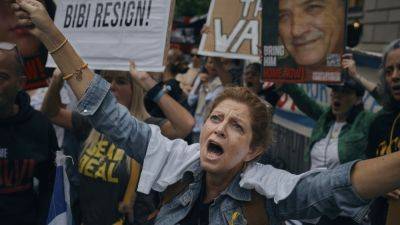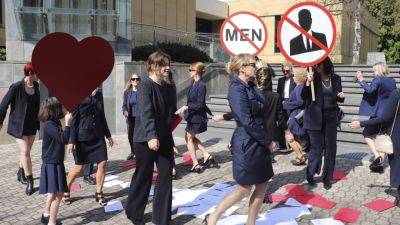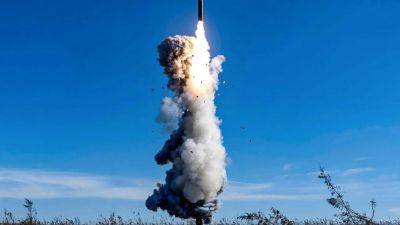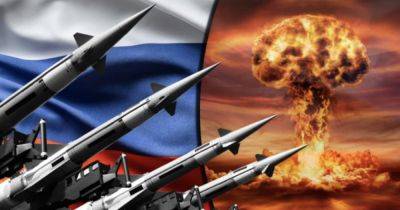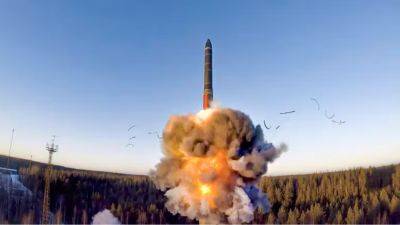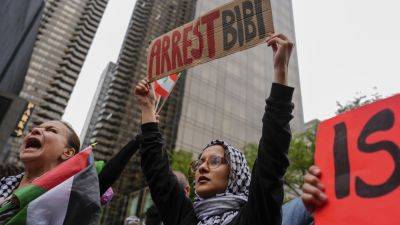What to know from the UN: China, Russia have their say, and a frog metaphor makes a cameo
UNITED NATIONS (AP) — China and Russia got their turns at the U.N. General Assembly podium on Saturday, but — per usual — their top leaders didn’t speak. Instead, they turned to their foreign ministers, WANG YI and SERGEY LAVROV.
Wang’s speech, per usual for China at the U.N., didn’t break much new ground. He weighed in on the importance of national sovereignty — a frequent talking point for Beijing — and insisted, as he usually does, that Taiwan incontrovertibly belongs to China.
Wang warned fellow leaders against an “expansion of the battlefield” in Russia’s war with Ukraine and said the Beijing government remains committed to shuttle diplomacy and efforts to push the conflict toward its end. He warned against other nations “throwing oil on the fire or exploiting the situation for selfish gains,” a likely reference to the United States.
Lavrov, meanwhile, waded into the topic of nukes three days after Russian President VLADIMIR PUTIN aired a shift in his country’s nuclear doctrine, “I’m not going to talk here about the senselessness and the danger of the very idea of trying to fight to victory with a nuclear power, which is what Russia is,” he said.
Later, holding court at a news conference, he accused the United States of seeking “to preserve their hegemony and to govern everything.” He pointed to NATO’s deepening relations with four partners – New Zealand, Australia, South Korea and Japan — as well as the so-called Quad which groups the U.S., India, Australia and Japan.
From the podium
ELOQUENCE BLUE RIBBON: The leader of Grenada, DICKON MITCHELL, went personal in his speech about resilience, spinning it into a mini-memoir that started with his birth in a small hillside village without running water or electricity.


